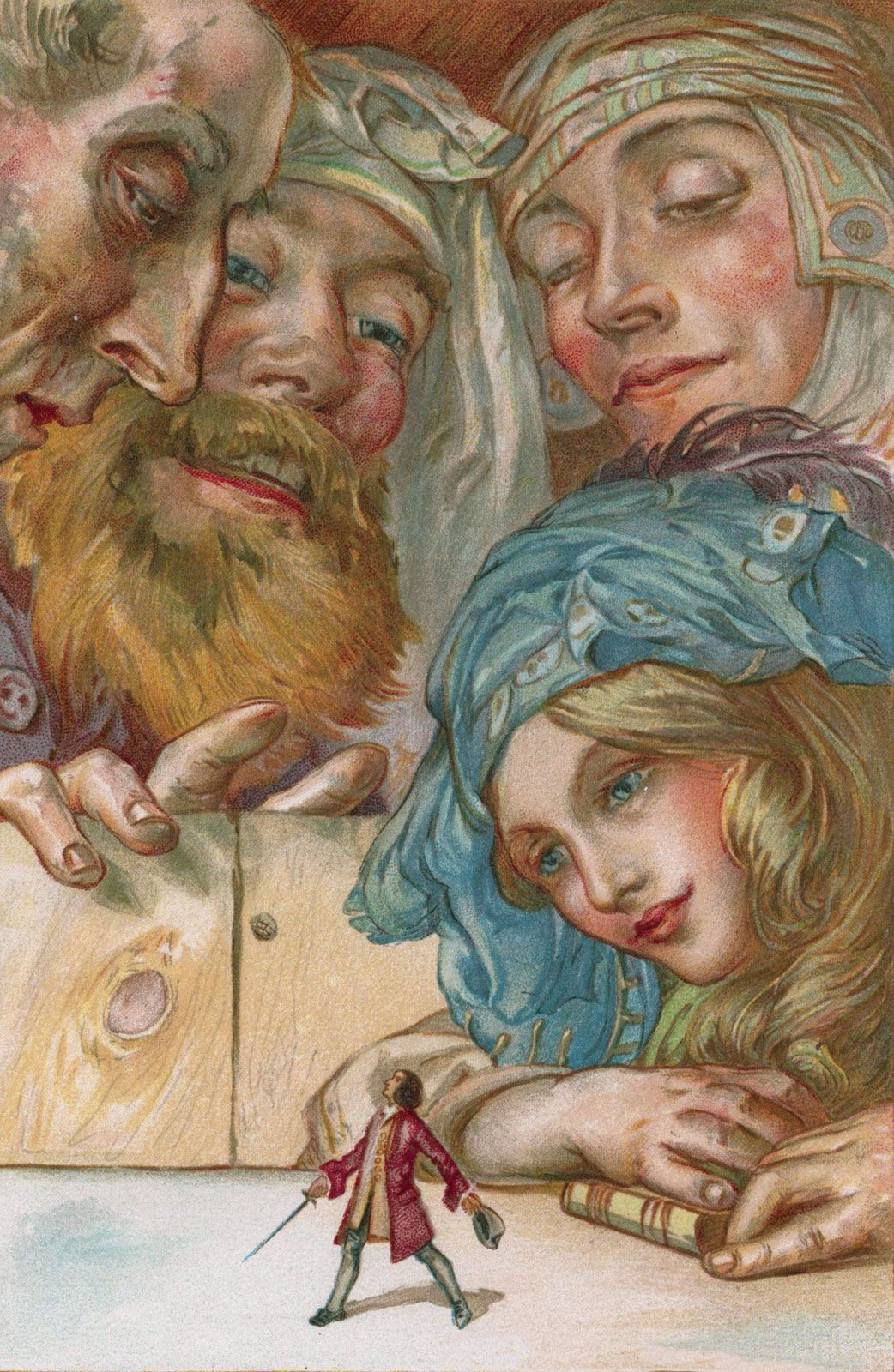Jonathan Swift’s Gulliver’s Travels remains a cornerstone of English literature, renowned for its satirical wit and imaginative voyages. While the entire novel takes readers through fantastical lands, the journey to Brobdingnag, the land of giants, stands out as particularly compelling. This second voyage thrusts protagonist Lemuel Gulliver into a world where everything is magnified, offering a unique lens through which Swift critiques humanity and society. Let’s delve into the land of giants and explore its significance within Swift’s masterpiece.
Gulliver’s arrival in Brobdingnag is a stark contrast to his adventure in Lilliput. Instead of being a giant among tiny people, he becomes a miniature figure in a realm populated by enormous beings. This reversal of scale is central to Swift’s satirical purpose. Imagine a world where blades of grass are as tall as trees and domestic animals are the size of elephants. This is Brobdingnag, a land where nature itself dwarfs Gulliver, instantly diminishing his sense of self-importance and the perceived grandeur of his own world.
Upon landing in Brobdingnag after being abandoned by his shipmates, Gulliver is found by a farm worker who is, to Gulliver, a towering giant. He becomes a curiosity, exhibited for money before being sold to the Queen. Life in the court of Brobdingnag is a constant reminder of Gulliver’s insignificance. He is kept in a custom-made box, transported like a pet, and is subject to both fascination and ridicule. His caretaker, Glumdalclitch, the farmer’s daughter, is a giantess who, despite her enormous size, is depicted as kind and gentle, highlighting the Brobdingnagian capacity for compassion, a stark contrast to some of the pettiness Gulliver encounters later in his travels.
The King of Brobdingnag is a figure of profound wisdom and intellectual curiosity. When Gulliver recounts the achievements and customs of England, the King listens intently, but ultimately responds with disdain. He is particularly horrified by Gulliver’s descriptions of war, politics, and the general state of European society. The King famously concludes that the English are nothing more than “odious vermin,” a scathing indictment of humanity delivered through the perspective of a giant, both literally and figuratively. This encounter serves as a powerful satirical tool, allowing Swift to critique European society through the eyes of an outsider who is, in Brobdingnag, quite literally looking up at human behavior.
While Brobdingnag is the land of giants, Gulliver’s Travels encompasses other remarkable destinations. In Lilliput, Gulliver is a giant among miniature people, satirizing political pettiness and the absurdity of societal conflicts. His third voyage takes him to Laputa, a floating island of intellectuals lost in impractical theories, and other lands where he encounters sorcerers and immortals, each episode offering further satirical observations on different aspects of human folly and societal structures. Finally, in the land of the Houyhnhnms, Gulliver encounters rational horses and the brutish Yahoos, leading to a profound and disturbing reflection on human nature itself.
However, the land of giants holds a unique place in Gulliver’s Travels. Brobdingnag is not merely a land of physical exaggeration; it is a realm of heightened perception. The sheer size of the Brobdingnagians forces a shift in perspective, magnifying human flaws and vanities to an almost grotesque degree. Through the King’s astute observations and Gulliver’s diminished stature, Swift masterfully employs the land of giants to amplify his satirical message. It is in Brobdingnag that Gulliver, and by extension the reader, is confronted with a giant-sized mirror reflecting the often-unflattering realities of human nature and society. This voyage serves as a potent reminder of the importance of perspective and the critical examination of our own self-importance within the grand scheme of the world. The land of giants in Gulliver’s Travels is more than just an adventure; it’s a profound satirical exploration of humanity, scaled up for impactful critique.


